What is a Shrovetide now we looked at Shrovetide (the first day). Historical Final . Everything described in the first part - the brainchild of the XX century and in a simplified form, looks like now, because the Christian church strongly influenced the ancestral holiday and changed it to non-recognition.
So, as a result of the Nikon reform in the 17th century, the church "appointed" its holiday to the place of a pagan holiday, deliberately shifting the celebration dates for the week before the great fast. After that Shrovetide began to be perceived in fact as a Christian religious holiday of Cheese or Sedentary Week.
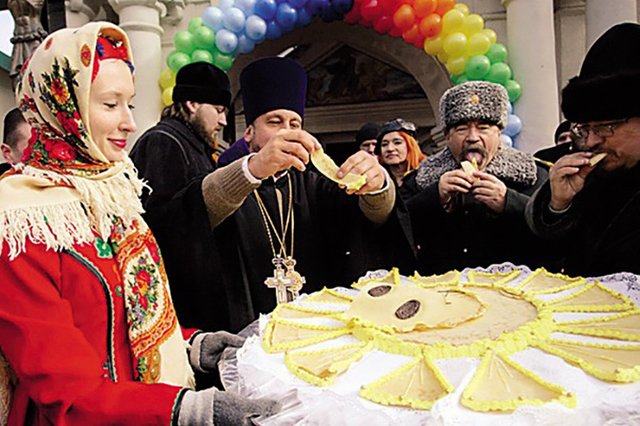
And it was then that the name of the Shrovetide holiday appeared, as the popular name of Cheese Week. but at the same time the people's holiday had great differences with the church.
So in the admonition of svt. Tikhon Zadonsky says:
"Cheese week is the vestibule and the beginning of fasting, and therefore the true children of the Church should enter this week in everything much more self-controlled than in the previous days"
And in fact, on Shrovetide abstinence speech and did not go, except for the refusal of meat, but this tradition goes back to the ancestor of Carnival, about which I will write in more detail below.
At the same time, clergymen are still clumsily trying to prove that Cheese Week is primary and that there can not be any native Russian holidays, Russian savages and nothing good could have been. Here is one of the stupid, because of ignorance of history, statements:
The liturgical features of the cheese week and the history of the church statute completely refute the false opinion that the carnival goes back to some pagan customs.As the Synaxar (on Saturday, the syrody) is told, the Byzantine emperor Irakli (610 -640) after six years of exhausting war with the Persian king Khozroi gave vow not to eat meat on the last week before the Great Lent. "
As we shall see a little later, the ban on meat is caused by completely different reasons. And Irakli, most likely, just "fell into paganism" "disappointed ... Although in the 7th century, it's a little early to be disappointed in non-existent Christianity ...
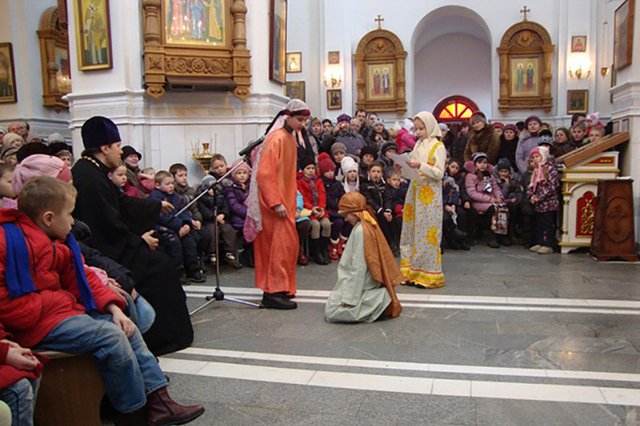
The mention of the Great Post should not be embarrassing you, since ancient times the Slavs had fasts. And the reasons for fasting were quite real and grounded in a healthy lifestyle. So, for example, the Dazhbogov fast, which took place at the beginning of winter, helped to switch to fully preserved food while maintaining the correct metabolism.
In Christianity, very different motives, divorced from real life:
"Fasting is not a diet, and refraining from certain types of food is not an end in itself, but one of the means of spiritual growth offered to us by the Church."
And in the end we have a week of gluttony from the belly, then to starve for 40 days. Why exactly 40 days, a separate topic and will be disclosed in the continuation of the series * "Many years" *
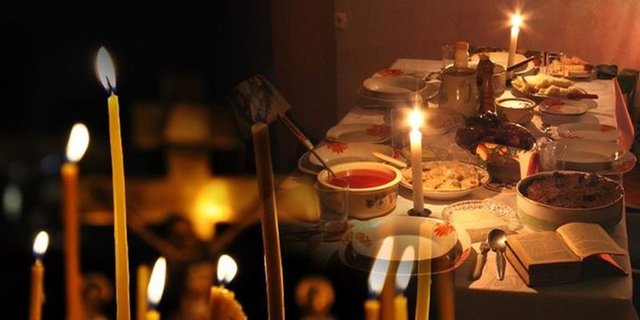
If there is still some ritual in the "Orthodox" carnival, in Catholicism, more often than not, their carnival equivalent of carnival is more and more reduced to padding.
Carnival is a Western Christian and Greek Orthodox festive season that occurs before the liturgical season of Lent.
The first carnivals began to be held in Italy in the 9th-10th centuries. With a particularly splendid carnival consulted in Venice, and until now the Venice carnival is considered the most magnificent in Europe.
The last day of the Catholic Shrovetide is called in many countries Fat Tuesday (* on the Italian-Martedì Grasso *), on this day, usually, the greatest festivities are held, and the greatest gluttony reigns, accompanied by abundant libations. On Fat Tuesday, it was necessary to eat not just to dumps, but straight to nausea and drink until I drop.
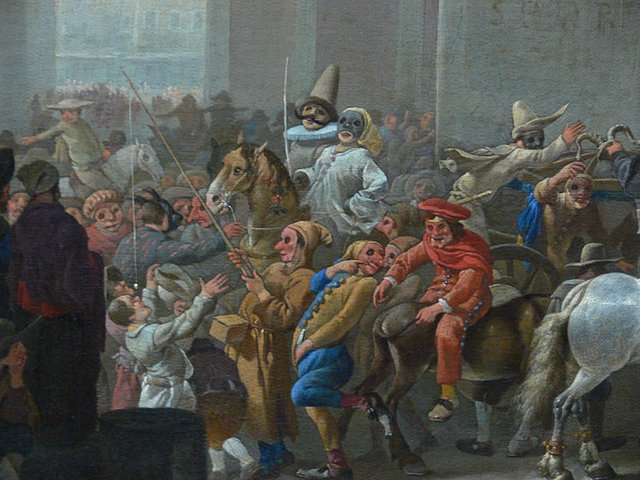
- Johannes Lingelbach Carnival in Rome (detail). 1650 g *
In France, they also celebrate Fat Tuesday. Catholicism, considering Easter as one of the most important holidays, requires strict observance of the fast before him. And as a result, unrestrained fun and intemperance in food and drinks. So Fat Tuesday is a mass procession in carnival costumes, accompanied by songs, dances and eating ... well, also pancakes. In addition to pancakes, traditional donuts and onion pies are considered.
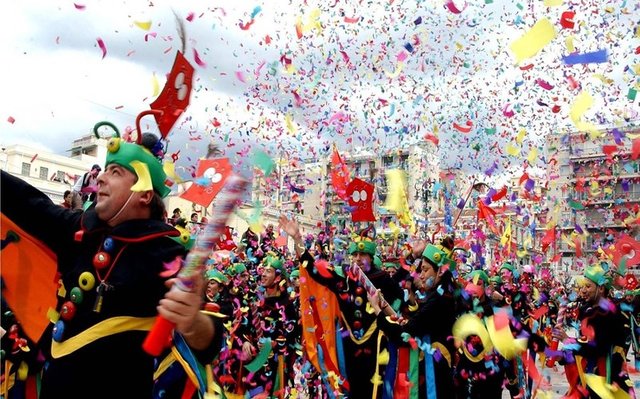
Original Shrovetide in England. There are held the Pancake Day. The essence of them in the "marathon" with pans. It is necessary to run through the whole distance throwing a pancake in the frying pan. It goes without saying that it's impossible to drop a pancake, otherwise the dishes with champagne are canceled ...
It is believed that a similar tradition appeared in 1445. When a good landlady heard a bell ringing for the divine service, she was in such a hurry not to be late for it, that she ran into the church with a frying pan with a pancake that she baked at the time of the bell.
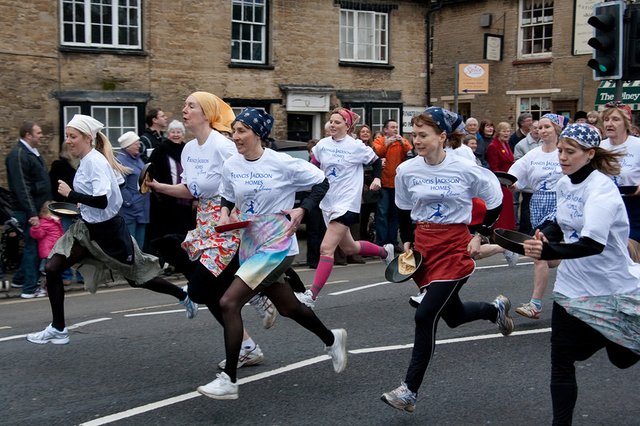
The German Maslenitsa is called Fastnacht. Fastnacht is also a carnival, which is celebrated in southwestern Germany.
The holiday begins with a campaign in the church on Thursday morning and the same ends on Wednesday afternoon.
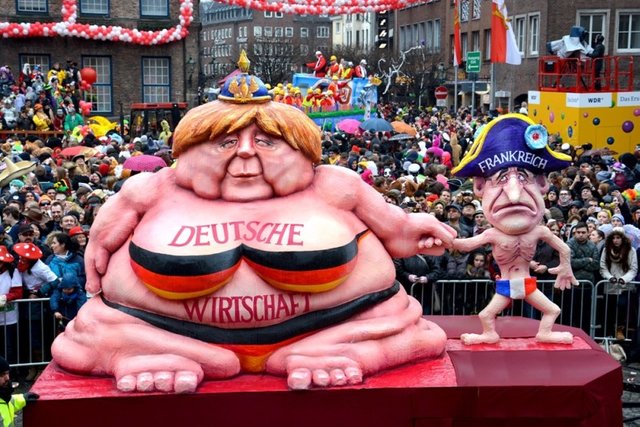
We also had an attempt to remake the Shrovetide in Carnival. "The Most Absolute, All-Eyed and Madish Cathedral" is one of the arrangements established by Tsar Peter I for the purpose of entertainment, drinking entertainments, carnival actions and so on. It's good that this next fun of Peter did not take root.
It may seem that carnivals have originated from our Shrovetide or that they share common roots, but this is not entirely true. The roots are common, but very ancient. And the "evolution" of the holidays went independently.
So carnivals have gone from "comedies", which even now sometimes form part of the carnival, for example "Comedy del Arte" in Italy.
The comedies were held during the Great Dionysius in March. They arose from various forms of folk entertainment (festivities with dances and hymns, quarrels and performances of mummers).
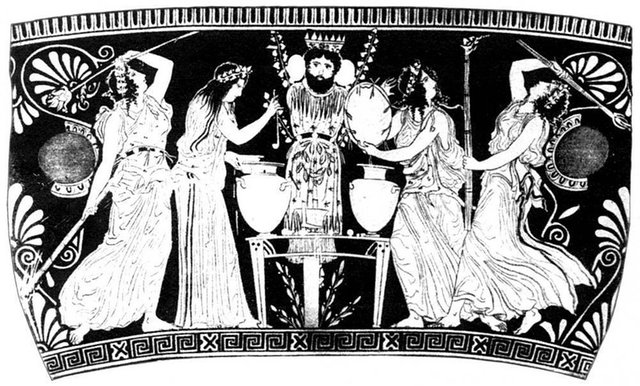
Oh, I never said from where the tradition went to celebrate Pancake week? ))) The answer is not entirely unambiguous, so I still briefly talk about holidays that have gone from ancient traditions. This is the case with certified scientists is simple, written in scientific work:
"The custom of spending oil season with pancakes in Russia is consistent with the peculiarities of national piety."
And all applaud, without even bothering to understand the symbolism of pancakes and the fact that the pancake is present in the "spring ritualism" of almost all peoples. Although they are right that really all these holidays have common roots, Slavic roots that came from ... Lukomorye ".
There is a popular recent opinion that Maslenitsa is a Slavic holiday "Comedian", which is still celebrated in Belarus. So it or not and we will understand further ...